Theme Analysis


Theme Analysis
During the first half of Mockingbird Harper Lee constructs a sweet and affectionate portrait of growing up in the vanished world of small town Alabama.. Lee, however, proceeds to undermine her portrayal of small town gentility during the second half of the book. Lee dismantles the sweet façade to reveal a rotten, rural underside filled with social lies, prejudice, and ignorance. But no one in Mockingbird is completely good or evil. Every character is human, with human flaws and weaknesses. Lee even renders Atticus, the paragon of morality, symbolically weak by making him an old and widowed man as opposed to young and virile. It is how these flawed characters influence and are influenced by the major themes underpinning their society.
Three major themes run through To Kill a Mockingbird: education, bravery, and prejudice. We learn how important education is to Atticus and his children in the first chapter when Jem announces to Dill that Scout has known how to read since she was a baby. Atticus reads to the children from newspapers and magazines as if they are adults who can understand issues at his level. By the time Scout attends her first day of school she is highly literate, far surpassing the other children in the classroom and frustrating her teacher whose task it is to teach her students according to a predetermined plan.
It soon becomes clear why Atticus thinks education is so important. During his closing arguments Atticus explicitly acknowledges the ignorance blinding people's minds and hearts: "the witnesses for the state…have presented themselves to you gentlemen…in the cynical confidence that their testimony would not be doubted, confident that you gentlemen would go along with them on the…evil assumption…that all Negroes lie, that all Negroes are basically immoral beings, that all Negro men are not to be trusted around our women, an assumption one associates with minds of their caliber" (217). Education is the key to unlocking the ignorance that causes such prejudice. Jem begins to understand this lesson toward the end of the book when he wonders whether family status could be based more on education than on bloodlines.
Jem also learns powerful lessons from his father regarding bravery and cowardice. Early in Mockingbird we learn that Atticus does not approve of guns. He believes that guns do not make men brave and that the children's fascination with guns is unfounded.
To prove his point, he sends Jem to read for Mrs. Dubose who struggles to beat her morphine addiction before she dies. He wants to show his son one shows true bravery "when you know you're licked before you begin but you begin anyway and you see it through no matter what" (121). Atticus also role models his sense of bravery by refusing to carry a gun to protect Tom Robinson from angry farmers and refusing to carry a gun to protect himself after Bob Ewell threatens guns. But bravery runs deeper than the decision to carry a gun. Atticus shows bravery when he takes Tom's case despite knowing that his town would turn against him and his children. Jem shows bravery when the children intervene on behalf of Atticus and Jem refuses to leave his father's side during the showdown with farmers at the jailhouse. And, perhaps the biggest lesson Scout must learn is to turn away and show real bravery rather than fight when people antagonize her.
The most important theme of Mockingbird remains the notion of prejudice in all of its forms. Clearly, with the Tom Robinson case, Lee's characters deal with racial prejudice head on. References to black men as "niggers" and "boys" persist throughout the book. Black people occupy the lowest class level of Maycomb society as Maycomb's white population of every class waste no time reinforcing their rigid class rules. The fact that Atticus realizes that he has no chance to win his case defending Tom because Tom is black offers the most explicit indicator of deep-rooted racism. His closing argument in Chapter Twenty clearly outlines Atticus's views on racism. However, Lee also shows us prejudice as it pertains to gender and social class.
Although the entire town subscribes outwardly to traditional gender roles and class distinctions, Aunt Alexandra stands plays the greatest role in reinforcing these notions within the Finch family. Alexandra believes that because the Finch family comes from a long line of landowners who have been the county for generations they deserve greater respect than do other people and they must comport themselves according to their status. She refuses to associate with both black and white citizens alike because they do not fill the same social position. Atticus, on the other hand, urges his children to sympathize with others and to "walk in their skin" before they judge or criticize others.
Scout suffers acutely from the stereotypes imposed upon her because of the rigid sexism and gender rules that govern southern life. Scout hates to wear dresses and the find the accusation that she "acts like a girl" highly offensive. Although the characters do not explicitly deal with gender issues, Lee does offer several characters, Miss Maudie and Miss Stephanie in particular, who illustrate the broad spectrum of southern womanhood that lies beneath the simplistic "southern belle" stereotype.
Atticus Finch defended Tom Robinson at his trial. Were Tom Robinson’s Constitutional rights respected?



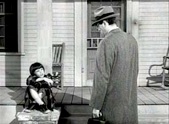
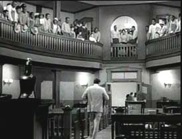
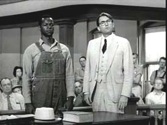
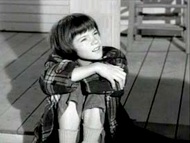
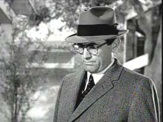

Click on me to go back to the Main Page for To Kill a Mockingbird!

